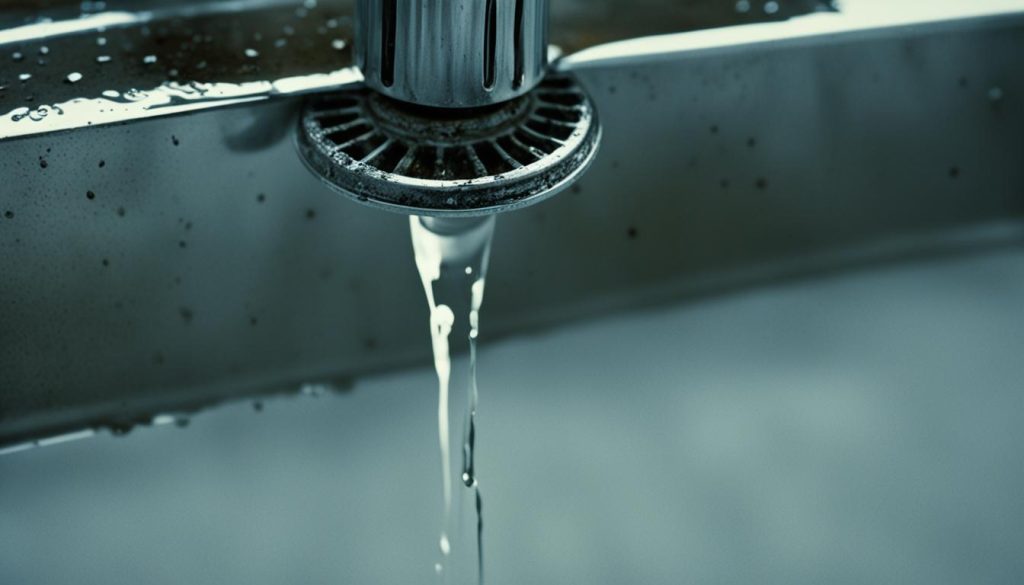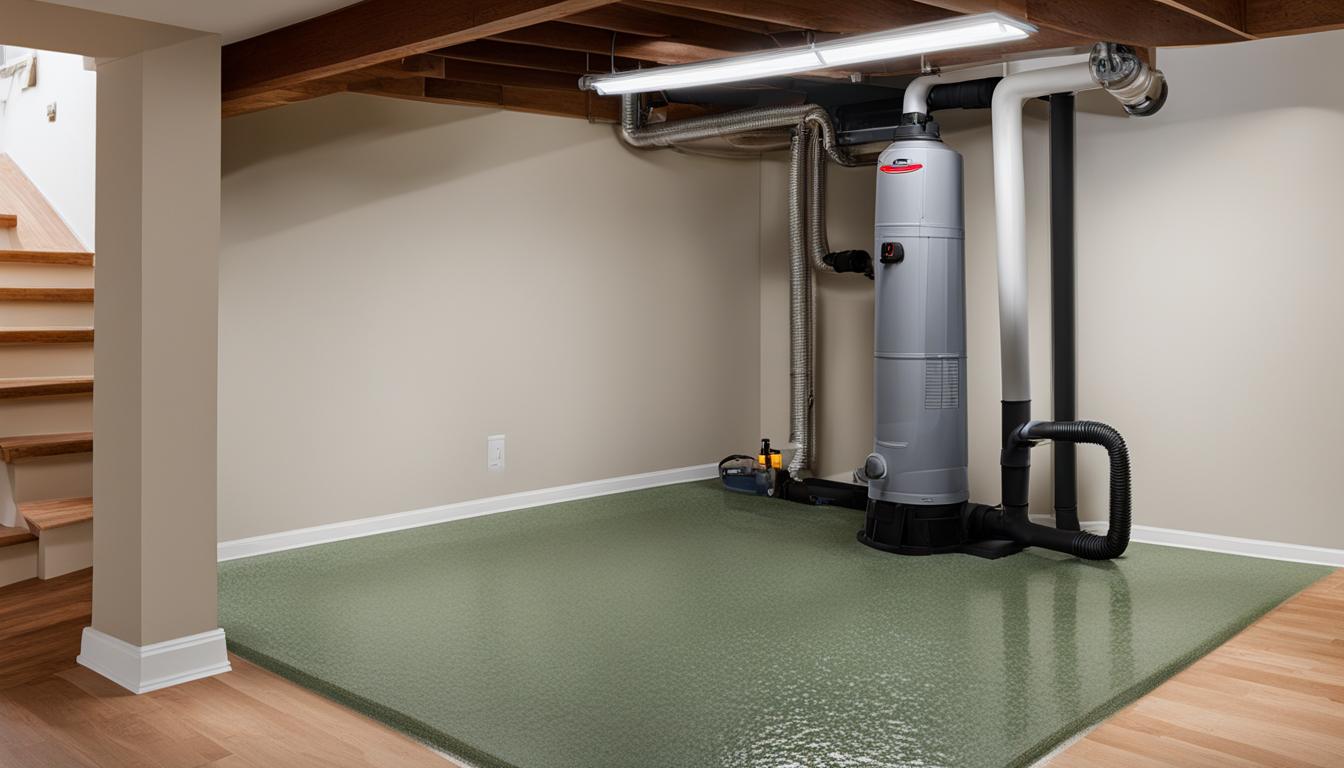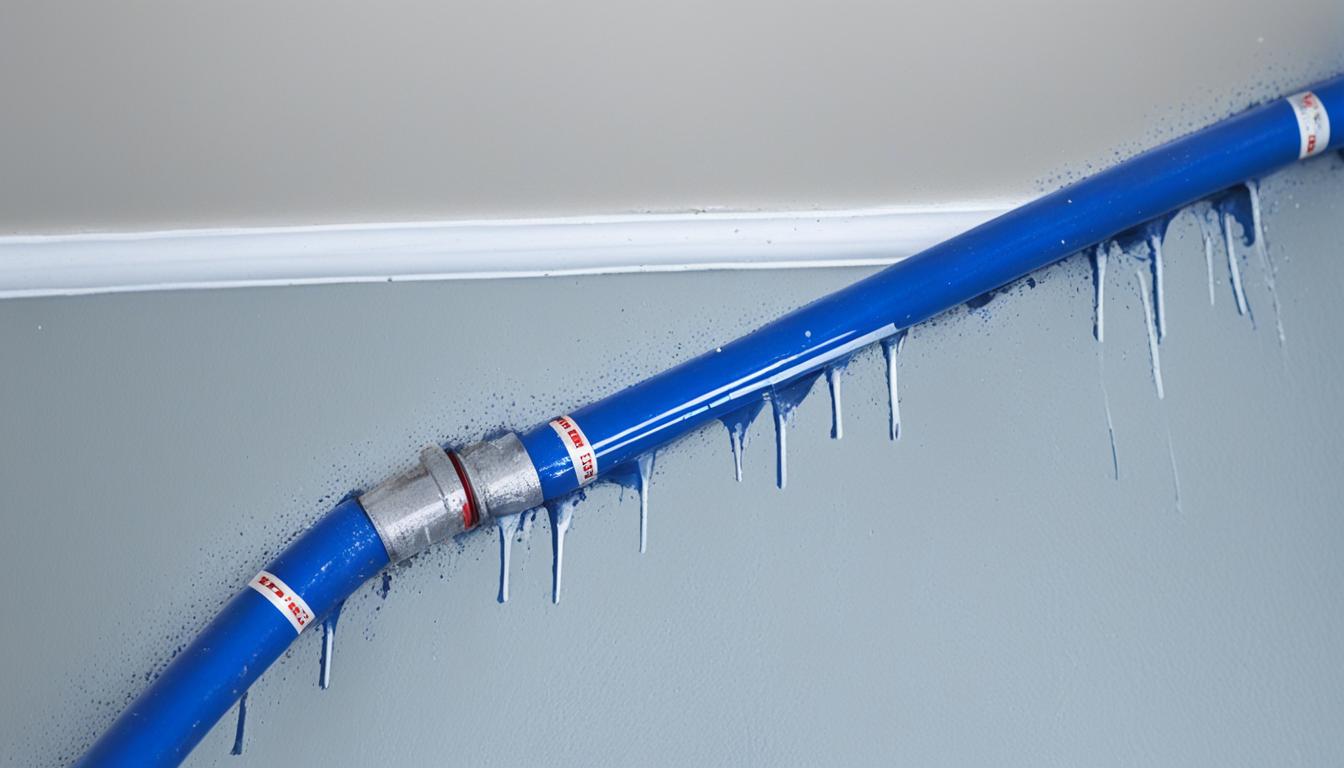Banish Odors: Freshen Your Stinky Sink Drain Kitchen
If you’re like me, you’ve probably experienced the frustration of a stinky kitchen sink drain at some point. That foul odor wafting up from the drain can quickly make your entire kitchen smell unpleasant. But here’s an unexpected fact: did you know that a stinky sink drain is not just a nuisance, but it can also lead to a clogged drain?
That’s right. Neglecting to clean your kitchen drain regularly can result in not only a smelly kitchen sink but also potential clogs that can disrupt your daily activities. Fortunately, professional plumbers have shared their secrets for banishing odors and keeping your kitchen drain fresh without breaking the bank.
Key Takeaways:
- Regular drain cleaning is crucial to prevent foul odors and clogs in your kitchen sink drain.
- You can eliminate drain odors using natural ingredients like hydrogen peroxide, baking soda, lemon juice, and citrus peels.
- Simple methods like using salt and hot water, Dawn dish soap, or a wire brush can help open up slow-draining drains.
- Avoid using vinegar, baking soda, and commercial drain cleaners, as they can damage the pipes.
- Prevent smelly drains by being mindful of what you put down the sink and using mesh strainers to catch food particles.
The best way to remove drain odors
The main culprit of kitchen sink drain issues is the accumulation of food waste, grease, and oil in the pipes beneath the drain. This buildup can result in unpleasant odors reminiscent of rotting food. Thankfully, there are effective methods for eliminating these odors without the need for expensive cleaning products.
If you’re looking for a simple and accessible solution, try pouring a cup of hydrogen peroxide down the drain. Hydrogen peroxide has antibacterial properties that can help kill odor-causing bacteria and freshen up your drain.
Another natural remedy is a combination of baking soda and lemon juice. Pour half a cup of baking soda and half a cup of lemon juice down the drain, allowing the mixture to sit for an hour. Follow it up with boiling water to flush away the residual buildup and leave your drain smelling fresh.
For those dealing with garbage disposal smells, a quick and easy fix is to toss the peel of an orange or lemon down the disposal and run it for 30 seconds. The citrus oils in the peels can help combat odors and leave behind a pleasant scent.
By using these household items, such as hydrogen peroxide, baking soda, and lemon juice, you can eliminate bad odors from your drain and enjoy a fresh-smelling kitchen without the need for harsh chemicals or expensive cleaners.
How to open up a slow-draining drain
If you notice that your drain is slow-draining but not completely clogged yet, you can try a few simple methods. Start by pouring ½ cup of table salt down the drain and waiting at least 30 minutes before rinsing it with hot water. If the drain is still slow, pour ½ cup of Dawn dish soap followed by boiling water to break up any food or grease stuck in the pipes. If these methods don’t work, you can use a wire brush or a wire coat hanger to manually remove any debris or gunk that is visible around the drain opening. If all else fails, you may need to clean out the P-trap located beneath the sink.
- Pour ½ cup of table salt down the slow-draining drain.
- Wait at least 30 minutes.
- Rinse with hot water.
- If the drain is still slow, pour ½ cup of Dawn dish soap down the drain.
- Follow with boiling water to break up any food or grease.
- Manually remove visible debris or gunk using a wire brush or a wire coat hanger.
- If necessary, clean out the P-trap beneath the sink.
What not to use to clean the drain
When it comes to cleaning your kitchen drain, it’s important to know what not to use. While vinegar and baking soda are popular cleaning agents for various household tasks, they should be avoided when it comes to cleaning your drain. Mixing vinegar and baking soda can create a powerful chemical reaction that can actually damage the pipes.
Additionally, commercial drain cleaners that contain harsh chemicals like sodium hydroxide and sulfuric acid can also be damaging to your pipes and pose a potential health risk. It’s best to avoid these commercial drain cleaners and opt for natural cleaning methods instead.
By avoiding vinegar, baking soda, and commercial drain cleaners, you can protect your pipes and keep your kitchen drain clean and odor-free using safer and more environmentally friendly methods.
How to prevent smelly drains in the future
To prevent smelly drains in the future, it’s important to be mindful of what you put down your sink. Certain substances can cause unpleasant odors and lead to clogged pipes. Here are some tips to keep your kitchen drain smelling fresh:
1. Watch what you put down the sink: Avoid pouring any kind of oil or fat, as they can solidify and cause blockages. Similarly, starchy foods like pasta and rice can swell up and create clogs. By disposing of these items properly, you can prevent future drain problems.
2. Use mesh strainers: If you don’t have a garbage disposal, using mesh strainers in your kitchen sink drains can be a life saver. These strainers catch solid food particles, like small bits of vegetables or fruit peels, preventing them from entering the pipes and causing blockages.
3. Avoid putting certain foods down the garbage disposal: While garbage disposals are convenient, they are not suitable for all types of food waste. Avoid putting fibrous foods like celery or corn husks, as they can get tangled in the blades. Additionally, coffee grounds and eggshells can accumulate and create issues. Dispose of these items in the regular trash to maintain a healthy drain system.
- Investing Wisely: How Windows & Doors in Boost Property Value and Financial Health - April 24, 2025
- The Financial Impact of Personal Injuries: Why Legal Help Matters for Business Owners - April 16, 2025
- The Hidden Financial Costs of Domestic Assault: What Business Owners Need to Know - April 16, 2025













